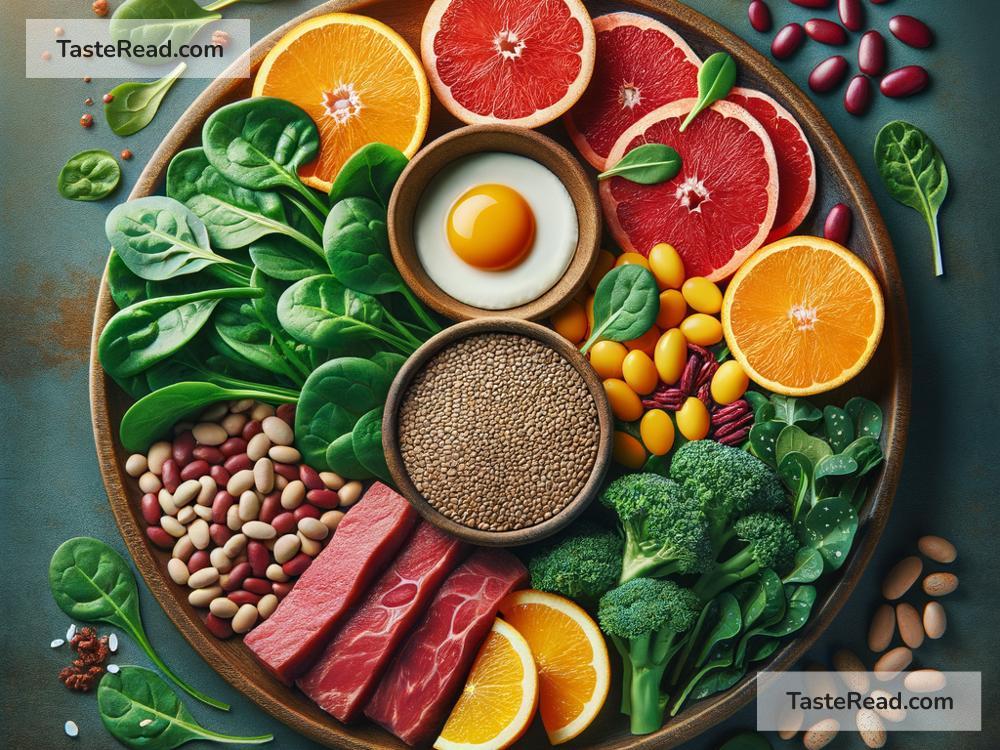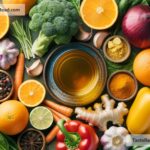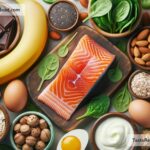Foods That Boost Red Blood Cell Production: Fueling Your Body Effectively
Your body is an incredible machine, working day and night to keep you alive and energized. One of its most essential functions is producing red blood cells (RBCs). These small cells carry oxygen from your lungs to every corner of your body, making them vital for your health. Not having enough RBCs can make you feel weak and tired—a condition known as anemia. Luckily, you can support your body by eating foods that boost red blood cell production. Let’s explore these amazing foods, broken down into easy categories.
Why Are Red Blood Cells Important?
Red blood cells contain hemoglobin, a protein that binds to oxygen and transports it to all your tissues. Without enough RBCs, your body struggles to function efficiently. Common symptoms of low RBC count include fatigue, pale skin, dizziness, shortness of breath, and poor concentration. Adding the right foods to your diet can increase RBC production and improve your overall well-being.
What Builds Healthy Red Blood Cells?
Certain nutrients play a major role in red blood cell production. These include:
– Iron: A key ingredient for hemoglobin production.
– Vitamin B12 and Folate (Vitamin B9): Help in producing new blood cells.
– Protein: Supports the formation of hemoglobin and cell structure.
– Copper: Works alongside iron to build RBCs.
By eating foods rich in these nutrients, your body can make enough red blood cells to keep you energized and healthy.
Iron-Boosting Foods
Iron is the star mineral when it comes to red blood cell production. Without it, your body can’t make hemoglobin, and your cells won’t get the oxygen they need. There are two types of iron: heme iron (from animal products) and non-heme iron (from plant-based foods).
- Animal Sources:
- Red Meat: Beef and lamb are excellent sources of heme iron.
- Chicken and Turkey: Poultry is also high in iron, especially dark meat.
-
Fish and Shellfish: Tuna, sardines, and clams are packed with iron.
-
Plant-Based Sources:
- Spinach: This leafy green is high in non-heme iron.
- Lentils and Beans: Chickpeas, black beans, and kidney beans are iron-rich superfoods.
- Tofu: A plant-based protein loaded with iron.
- Fortified Cereals: Many breakfast cereals are enriched with iron for an added boost.
Pair plant-based iron with vitamin C (like eating oranges or tomatoes) to help your body absorb it better.
Vitamin B12 and Folate-Rich Foods
Vitamin B12 and folate work together to create and repair red blood cells. If your diet is low in these nutrients, your body struggles to maintain a healthy blood supply.
- Vitamin B12 Sources:
- Meat and Fish: Beef, chicken, salmon, and tuna are great choices.
- Eggs: The yolk contains Vitamin B12.
- Dairy Products: Milk, cheese, and yogurt are good sources of B12.
-
Fortified Foods: Plant-based milk and cereals often have added B12.
-
Folate Sources:
- Leafy Greens: Spinach, kale, and romaine lettuce are rich in folate.
- Avocados: This creamy fruit is both delicious and nutritious.
- Legumes: Lentils, beans, and peas are packed with folate.
- Citrus Fruits: Oranges, lemons, and limes provide folate in addition to vitamin C.
Protein-Packed Foods
Proteins contain amino acids, which are essential for building hemoglobin. Adding protein-rich foods to your diet helps your body maintain strong, healthy red blood cells.
- Animal Protein:
- Lean Meats: Chicken, turkey, and pork.
-
Fish: Cod, salmon, and mackerel are ideal options.
-
Plant-Based Protein:
- Nuts and Seeds: Almonds, sunflower seeds, and chia seeds are rich in protein.
- Legumes: Lentils, chickpeas, and edamame are great protein sources for vegetarians.
Copper-Rich Foods
Copper may not be as well-known as iron, but it’s just as important. This mineral helps your body absorb iron and make hemoglobin.
- Copper Sources:
- Shellfish: Oysters, crab, and lobster are excellent sources.
- Whole Grains: Brown rice, quinoa, and oats contain copper.
- Nuts: Cashews, walnuts, and pecans are rich in copper.
- Seeds: Sunflower seeds and sesame seeds boost your copper intake.
Hydration Matters
Don’t forget to drink plenty of water! Staying hydrated helps your blood flow smoothly and allows red blood cells to work effectively. Tea and coffee are fine in moderation, but too much caffeine can interfere with iron absorption. Water should always be your number one choice.
Final Thoughts
Boosting red blood cell production through your diet is one of the most natural and effective ways to improve your energy and overall health. By eating iron-rich foods, plenty of protein, and vitamins like B12 and folate, you give your body all the tools it needs to thrive.
Remember, it’s not just about adding one or two foods to your plate. A balanced and varied diet is key to ensuring you get all the nutrients you need. If you suspect you have low red blood cell levels or iron deficiency, talk to your doctor. They may recommend blood tests or supplements to help you get back on track.
Take good care of your body, and it will take great care of you!


